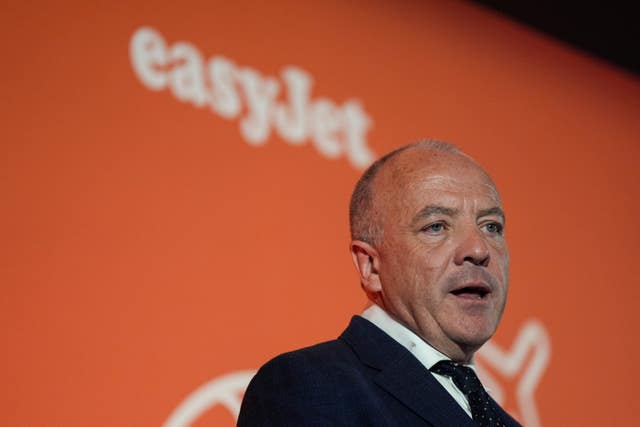‘Flying taxis’ could appear in UK skies as early as 2028, minister says
Transport minister Mike Kane said the Government wants to ‘maximise the benefits of future flight technologies including flying taxis’.

“Flying taxis” could be in UK skies by 2028, a transport minister has claimed.
Mike Kane told MPs the Government wants to “maximise the benefits of future flight technologies including flying taxis”.
Last month, the Government announced £20 million of funding to make the use of commercial drones and flying taxi services a reality.
The Department for Transport (DfT) and Civil Aviation Authority (CAA) will be supported by the new Regulatory Innovation Office, which aims to cut red tape to ensure new technology reaches the public sooner.
In March, US company Joby Aviation announced its collaboration with Virgin Atlantic which aims to offer “seamless, zero-emission, short-range journeys across the UK”, starting with hubs at Heathrow and Manchester Airport.
Joby’s electric air taxi is designed to carry a pilot and up to four passengers at speeds of up to 200 mph.
Labour MP Alice Macdonald (Norwich North) raised a scheme by Norwich airport that aims to make “make East Anglia the heart of aviation innovation” and invited the minister to “take a flight on an electric plane”.
Mr Kane replied: “This Government wants to see the UK maximise the benefits of future flight technologies including flying taxis, both for the economy and for communities.
“We recently announced over £20 million of government funding to the CAA and the Future Flight Challenge to deliver the future flight programme this year.
“This joint programme between industry, Government and the CAA will enhance drone capability by 2027 and flying taxis by 2028 in the UK skies. I would be delighted to visit her and Norwich, the airport in her constituency.”

Later in the session, Tory shadow transport secretary Gareth Bacon claimed the Government’s Employment Rights Bill could “threaten passengers’ abilities to travel without disruption or additional costs”.
He said: “The Employment Rights Bill reduces the required notice period for strike action in any industry from 14 days to 10 days, increasing the risk of last-minute cancellations, which could in theory cost airlines tens of millions of pounds, which could in turn lead to higher costs for passengers as airlines pass the expenses on to the travelling public.”
Mr Kane replied: “This Government will always put passengers first. That’s why more passengers than ever are flying in our skies and leaving our airports.”
Labour MP Graham Stringer called on the Government to abolish air passenger duty.
The member for Blackley and Middleton South was the chairman of Manchester Airport from 1996 to 1997.
He said: “Every study shows that the cost of the tax, or the revenue generated from the tax, is much less than the benefit of abolishing the tax.
“Will he and the Secretary of State go and try and talk some sense into the Chancellor of the Exchequer and their officials to get rid of this tax and benefit both aviation and the economy?”
Mr Kane said airport passenger duty is “part of a rich mix of the aviation tapestry”, adding that “most airports and airlines are seeing demand go through the roof”.





